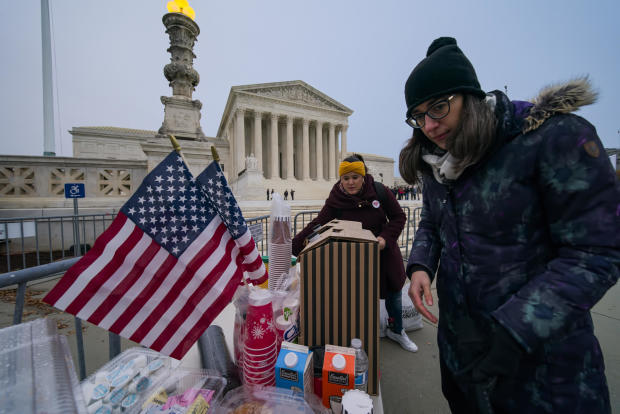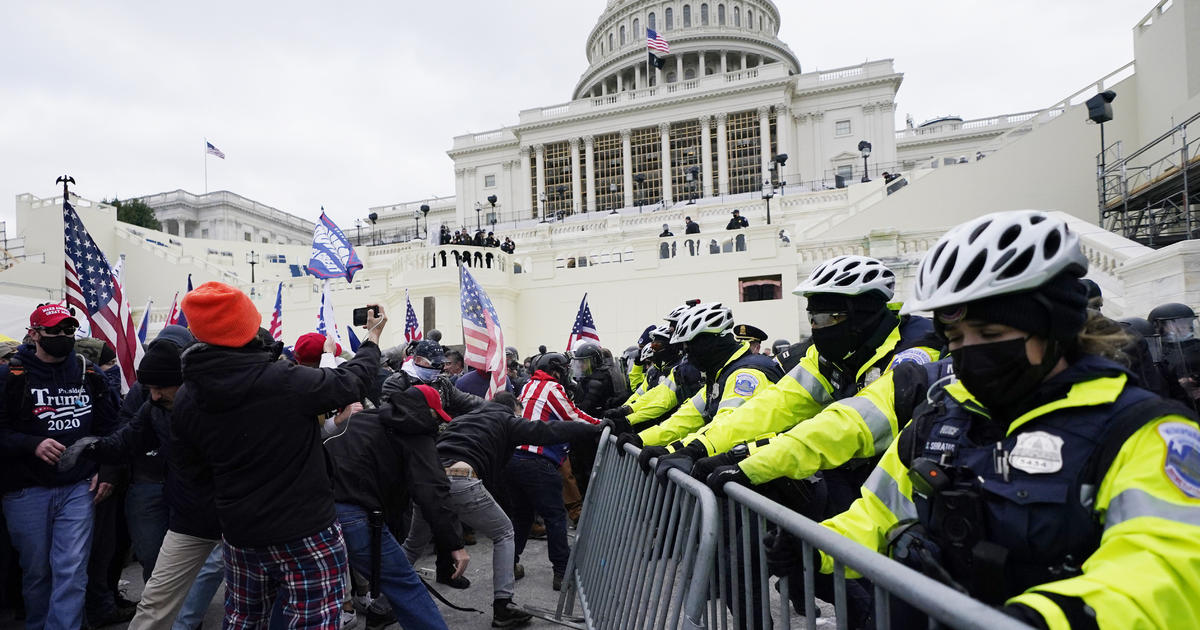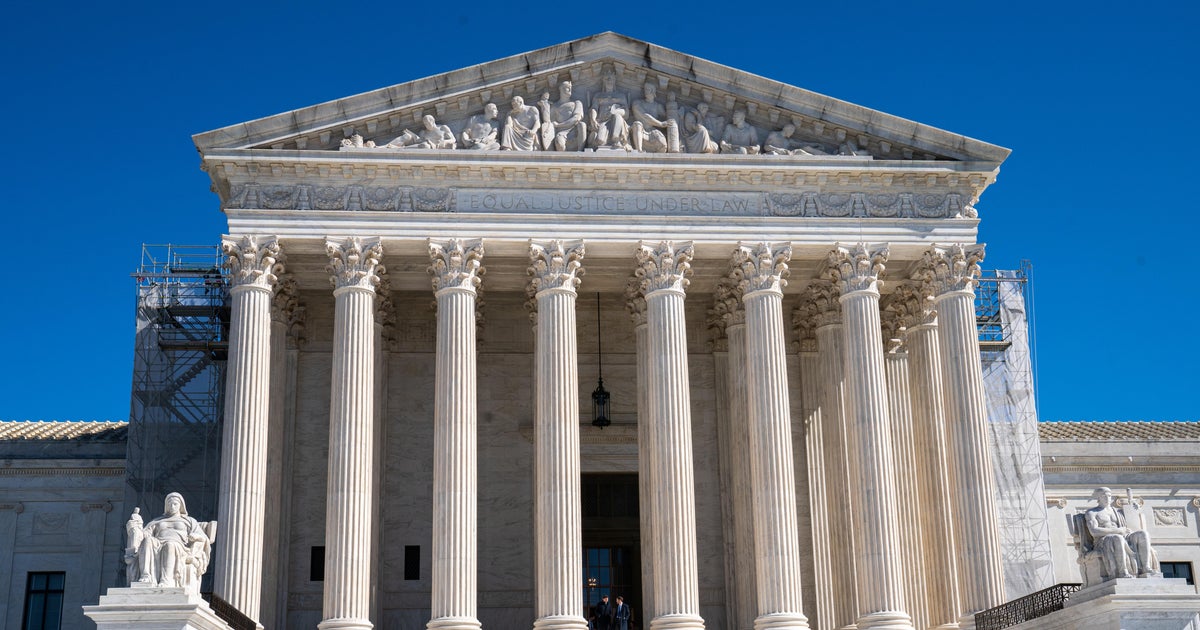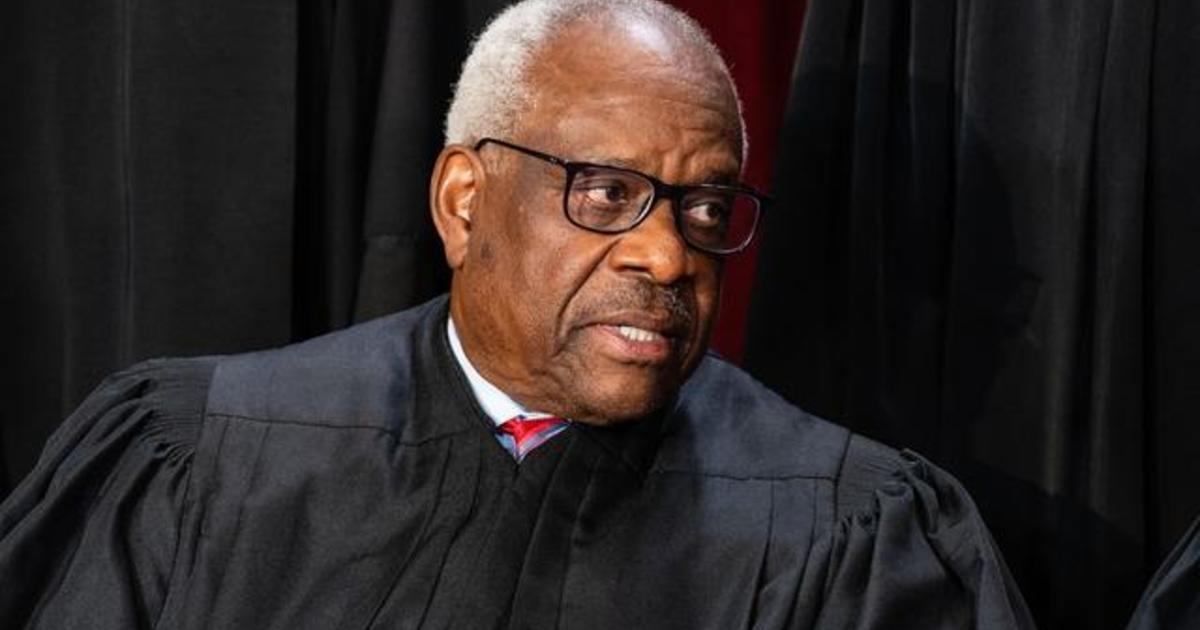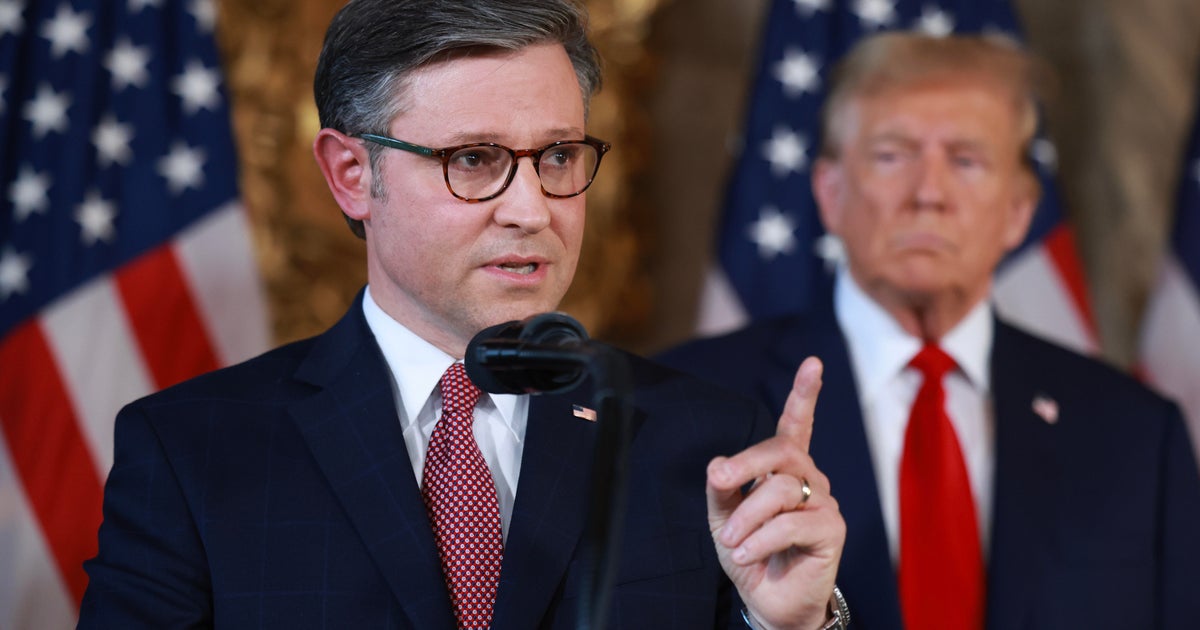After sidestepping ruling on gun rights, Supreme Court win for gun control groups could be temporary
Washington — When the Supreme Court on Monday tossed out a dispute over since-changed New York City rules restricting the transport of handguns, it avoided issuing a major decision on the scope of the Second Amendment, handing a victory to gun control groups that advocate for stricter rules on firearms.
But gun control advocates caution that victory could be fleeting, as the high court is already poised to consider whether to take up other pending legal battles involving the scope of the Second Amendment.
"It's a win, but it's a temporary one based on the appetite of at least the four justices who joined separate opinions to take up another Second Amendment case," Hannah Shearer, litigation director at the Giffords Law Center to Prevent Gun Violence, told CBS News. "It's not to say that the victory will soon turn into a loss, but what's likely to happen is the court will take Second Amendment cases soon and the process will start over."
The Supreme Court's decision to hear the dispute between the New York State Rifle and Pistol Association and New York City officials ended a 10-year drought in gun rights cases before the justices.
The high court ruled in 2008 that the Second Amendment protects an individual's right to keep and bear arms for self defense in the home. In 2010, the court said the Second Amendment applies to state and local gun laws. Since then, it has rejected other legal battles over firearms restrictions.
The case out of New York, which challenged restrictions on where licensed firearms owners could transport their handguns, changed that, and gun control organizations feared that if the Supreme Court's new conservative majority struck down the transport rules, other local and state rules would follow.
After the court agreed to hear the dispute but before oral arguments in December, New York City altered the rules at issue to allow licensed firearms owners to transport their locked and unloaded handguns to second homes or shooting ranges outside city limits. The Supreme Court on Monday issued an unsigned opinion dismissing the case as moot and sent it back to the lower court to decide whether the gun owners who sued can seek damages.
Three justices — Samuel Alito, Clarence Thomas and Neil Gorsuch — dissented, while Justice Brett Kavanaugh issued a short concurring opinion saying he shared the concern from his fellow conservative justices that lower courts may not be applying the Supreme Court's last two Second Amendment decisions. Kavanaugh, the newest member of the court, also indicated that the justices should not wait long before hearing another gun case.
"The court should address that issue soon, perhaps in one of the several Second Amendment cases with petitions for certiorari now pending before the court," he said.
The justices are set to meet Friday for their private conference, during which they discuss cases before the court. On the agenda: at least six cases involving state and local firearms restrictions and the reach of the Second Amendment.
"The Supreme Court is well aware that they need to clarify the scope of the Second Amendment because presently, and Kavanaugh points this out, all the lower courts are doing is rubber stamping any gun law without giving it proper consideration," said Matthew Larosiere, director of legal policy for the Firearms Policy Coalition. "The court has made it pretty clear they're going to weigh in in the Second Amendment context. If anything, this just means the court is going to have to step into a case that's more controversial, like an assault weapons case."
Among those cases set to be discussed Friday are two involving assault weapons bans in Massachusetts and Cook County, Illinois, as well as challenges to concealed carry laws in New Jersey, Massachusetts, Maryland and Illinois, which raise the question of whether the Second Amendment protects the right to carry outside the home. Also scheduled to be discussed by the justices is a battle over a California law that requires handguns to meet certain design requirements.
If the Supreme Court agrees to take up any of the cases, it likely would not be heard until its next term, which begins in October, with a decision arriving before the end of June 2021.
While it seems four conservatives justices are eager to take up more gun rights cases — it takes four votes for the court to grant certiorari — what's less clear is whether there are five votes to strike down a law, with Chief Justice John Roberts poised to be the swing vote.
"The four justices might not vote to grant review if they don't think the chief justice would side with them," Shearer said. "One possibility is they don't grant review because they don't think they have the votes. Another possibility is they grant review even though his vote is up in the air. It's not a predetermined outcome when they take another case."
"I do think there's a risk that either there's five votes on the Supreme Court to strike down some gun laws that are on the books in the states or issue an opinion that shifts Second Amendment law in a way that broadly affects other types of gun safety laws," she added.
Shearer said cases more likely to attract interest from the Supreme Court involve concealed carry laws, as well as the dispute from California.
"The court has acted cautiously in the Second Amendment area so far. Heller applied only to handguns in the home and said it wasn't intended to disturb many other types of gun safety laws," she said, referring to the 2008 case, District of Columbia v. Heller. "The justices could issue a similar opinion that strikes down a specific law but is careful not to disturb other laws."
The reluctance of the Supreme Court to hear cases involving the Second Amendment has been a point of contention for Thomas in particular. In 2018, after the court turned away a case involving a California law requiring a 10-day waiting period for gun sales, Thomas wrote the Second Amendment has become a "disfavored right" and the high court's "constitutional orphan."
He also accused the lower courts of treating the right to bear arms "cavalierly" and failing to "afford the Second Amendment the respect due to an enumerated constitutional right."
The dispute over New York City's gun rules raised a narrow issue, and Larosiere predicts the Supreme Court will avoid a sweeping ruling in future cases. Still, he's optimistic gun rights advocates won't have to wait long before the justices decide to weigh the reach of the right to keep and bear arms.
"I don't think it'll be another decade," he said.
